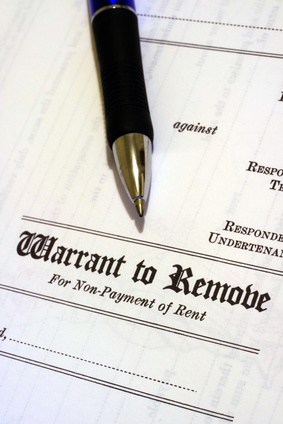
Two things are certain about almost every landlord-tenant relationship: that the tenant will be required to deposit money with the landlord as security before moving in; and that the relationship will end at some point. So what happens to the security deposit? Generally, the landlord has a duty to return it to the tenant when he or she moves out. But not surprisingly, sometimes the tenant causes damages to the apartment. In those cases, the landlord will want to assert a claim to the security deposit to setoff the cost of repairing the damages. You may be surprised to learn that depending on how a landlord handles the security deposit, he or she may have no claim to it at all, and may have to return it in full to the tenant.
Rosalba Carrea, a landlord in the City of Rye, New York, learned that lesson the hard way when his former tenants, Ines Escobedo and Michael Santoro, brought a small claims action against him for the return of their security deposit of $2,200.00. The landlord brought a counterclaim for damages to the rental unit. Prior to moving in, the tenants deposited $2,200.00 with the landlord as security.
Section 7-103 of the General Obligations Law requires a landlord who accepts a security deposit to hold it in trust for the tenants and to not comingle it with other moneys. Under the statute, a landlord also has a duty, whenever he or she deposits the security money into a bank account, to be certain that the account is used for the sole purpose of banking the security deposit, and to immediately notify the tenant in writing of the name and address of the bank and the amount of the deposit.
In the event that a landlord comingles the security deposit with other moneys, such as depositing it in his or her personal bank account, he or she loses all rights to claim the security, or any portion of it, for damages to the rental unit; and the tenant becomes entitled to the full return of the security. If a landlord deposits the security into a bank account and fails to inform the tenant in writing of the name and address of the bank and the amount deposited, that failure is considered by the courts to be rebuttable proof that the landlord comingled funds.
In the case of Rosalba Carrea, not only did he admit to comingling funds, but he also admitted that he never informed the tenants of the name and address of the bank and the amount deposited. Based on these facts, the court found that Mr. Carrea was not entitled to bring a counterclaim against the tenants, because his mishandling of the security deposit ended his right to any claims against the security for damages. Accordingly, the court ordered that Mr. Carrea had to return the security deposit of $2,200.00 in full to his former tenants, and his counterclaim for damages was dismissed. Judge Latwin also noted that “[a]ttempting to save money [by] not seeking the advice of an attorney who could have alerted the landlord to the legal requirements was a false savings.” Judge Latwin went on to say, “The cost of getting legal advice is a factor every landlord should include in determining whether or not to be a landlord in the first place.”
To avoid having to go through what Mr. Carrea did, every landlord should remember that when you deposit your tenant’s security in the bank, make sure it is a separate account that you do not use for any other purpose; and make sure that you immediately notify the tenant in writing of the name and address of the bank and the amount of the deposit. Taking these simple steps to comply with the law will preserve your right to claim the security deposit to settoff the cost of repairing damages caused by the tenant.
Landlords in Nassau and Suffolk Counties can learn an even more important lesson from this case. That lesson is to make sure you consult with an experienced landlord tenant lawyer in Suffolk County or Nassau County before entering into a landlord-tenant relationship. An ounce of prevention is truly worth a pound of cure.
_____________
The case discussed above is Escobedo v Carrea, Rye City Ct, Feb. 8, 2012, Latwin, J., index No. SC-000074-11 (2012 NY Slip Op 30310[U]).








Thank you for mentioning our case. Thanks to our experienced lawyer, justice was served.
I’ve been renting in Nassau for over 15 years and the landlord has not once given the renters the security deposit back and make false claims for the reason behind their assessment for damages to the property. Overwhelmed and uncomfortable renters just get the money stolen. How much time do you have to file a lawsuit for the actions?
There is no specific statute of limitations on actions to recover a security deposit from a landlord. In such cases, i.e., where there is no specific statute, the limit is six years from the time the cause of action accrues. Since a landlord has fourteen days to return a security deposit, or to provide the tenant with a written itemization of how the security deposit, or some part of it, was used (why it was withheld), the cause of action accrues on the fifteenth day after the tenant moves out. From that point, a tenant has six years to bring an action.